Text

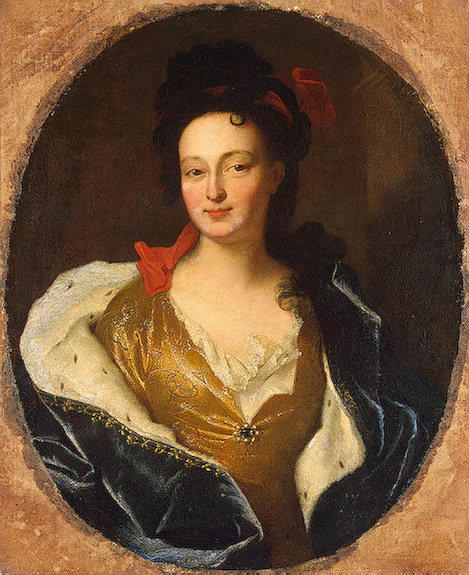
French portraits of Marfa Fedorovna Matveeva in Russian (1702) and European (1706) dress
#russian art#russian history#historical fashion#history#art#russian portraits#portraits#portrait#russian nobles#russian aristocracy#the aristocats#aristocracy
44 notes
·
View notes
Text




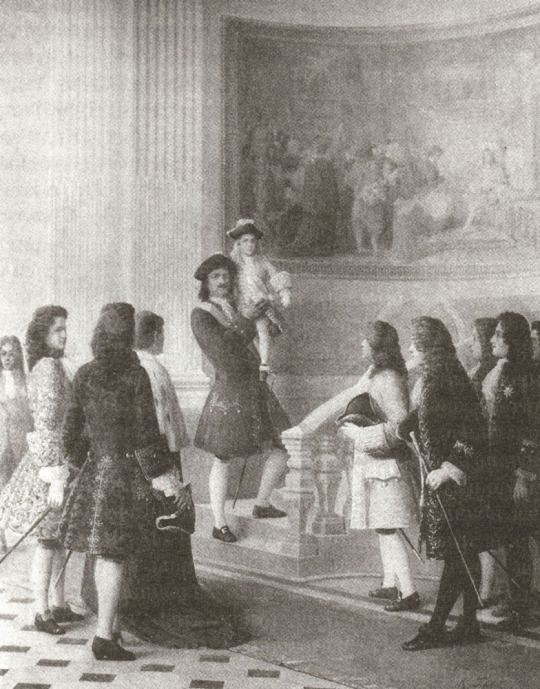

"The whole of France is in my hands!" (c) Peter the Great
"It was amazing to see," Saint-Simon wrote, "how the tsar takes the king in his arms, lifts him up and kisses him, and the king, at his young age, moreover, completely unprepared for this, was not at all afraid."
Later Peter wrote in a letter to his wife Catherine:
"I declare to you that last Monday I was visited by their king, who is two fingers higher than our Luka (the royal dwarf, who was in the tsar's retinue), a child of great height and constitution, and quite intelligent in his seven years…"
#peter the great#Louis XV#Louis the Beloved#Peter I#Peter I of russia#russian history#russia#french history#russian royalty#russian imperial court#russian royal family#russian imperial family#french royal family#the romanoffs#romanovs#romanoff family#House of Bourbon#bourbons
6 notes
·
View notes
Text


An important merit of Princess Shcherbatova was that she tried to bring the right organization to the public charity. In 1844, Sofia Stepanovna founded the "Ladies' Guardianship of the Poor" in Moscow, which she chaired until 1876. The society aimed to "discover people who truly need help, especially those who are ashamed to ask for alms, and provide them, according to circumstances and as far as possible, with such benefits that would bring them substantial benefit and could not be used for evil".
After the death of her husband in 1848, she informed Emperor Nicholas I of her intention to transfer to the benefit of the society the monetary payments granted to her for the merits of her spouse. In 1848, during the cholera epidemic in Moscow, Princess Sofia Stepanovna, together with Dr. Fyodor Petrovich Haaz, organized a community to help those in need, called Nikolskaya in the honor of the St. Nicholas. The sisters of this community continued their activities during the Crimean war.
The Commissar Technical School also owes its origin to Princess Shcherbatova. With her light hand, orphanages for children, almshouses for the elderly, homes for the homeless were founded in Moscow; the activities of prison committees revived. In 1847, charitable institutions were established near the Novospassky Monastery — an almshouse, a hospital, an orphanage and a church — bearing her name.
Until a very old age, Sofya Stepanovna personally supervised the charitable institutions founded and organized by her, but when this difficult work became beyond her strength after 30 years of work, she handed it over to other reliable hands, but she did not cease to monitor her institutions, visiting them and coming up with various innovations and improvements for them.
When she died, Empress Maria Feodorovna wrote to her son :
Having been informed of the death of your mother, I cannot but express My deep sorrow for the loss of such a sensitive for the family of the deceased and for Moscow, which has lost a revered and respected benefactor in her...
#russian history#russia#women in history#romanovs#house of romanov#Contents hide#(Top)#References#Sofya Shcherbatova#Princess Sofya Stepanovna Shcherbatova#Sofya Stepanovna Shcherbatova#Princess Sofya Stepanovna Apraksina#Sofya Stepanovna Apraksina#charity#history#paintings#painting aesthetic
16 notes
·
View notes
Photo
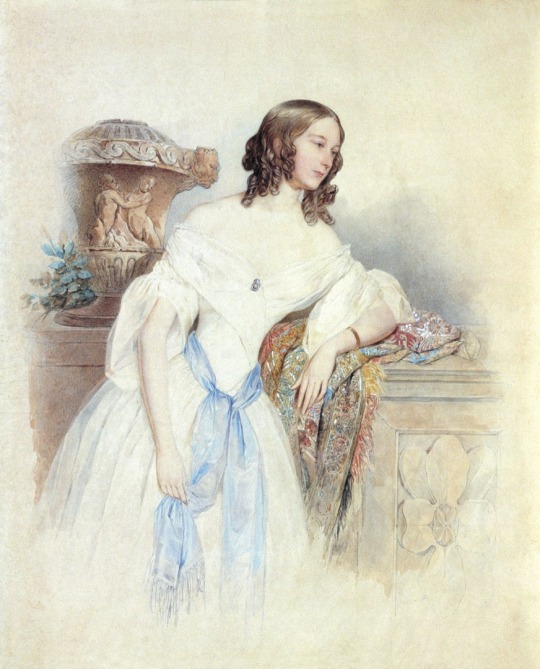

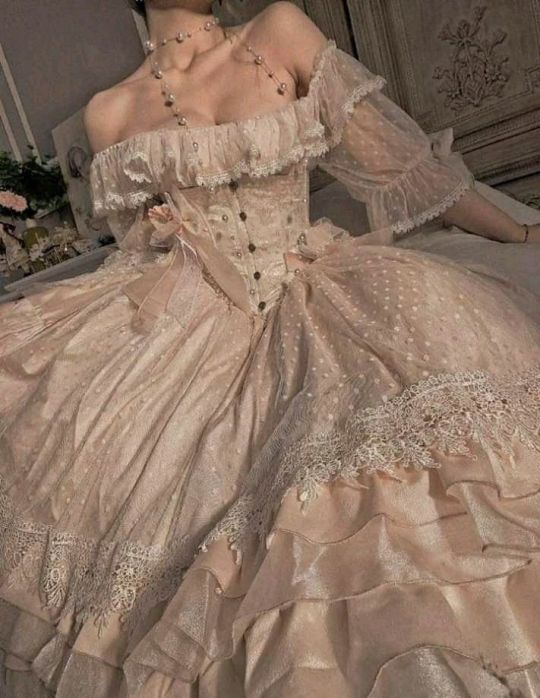



Till the middle of 1840th, according to memoirs of Valerian Alexandrovich Panaev, ladies from high society never visited restaurants, but around that time a push was given from the highest spheres of society and visiting restaurants became fashionable.Three high society ladies - Princess Yusupova, Princess Urusova and Countess Orlova-Denisova - acted as resolute fighters for women's equality. According to historical chronicles, the mentioned ladies stopped by the Dussault restaurant after the masquerade ball and ordered dinner with numerous witnesses. The case was so serious that it was reported to the St. Petersburg Governor-General, the St. Petersburg chief of police, the husbands of the ladies. High society split into two camps: progressives supported the bold undertaking, retrogrades were outraged. Everyone was waiting for what the emperor would say. Nicholas I left the case "without consequences". We can assume that this was the first feminist performance in Russia.
Ya. Dlugolenski "The Age of Dostoevsky"
#Princess Alexandra Sergeevna Urusova#Princess Alexandra Urusova#Priincess Urusova#Countess Natalia Alekseevna Orlova - Denisova#Countess Natalia Orlova - Denisova#Princess Zinaida Ivanovna Yusupova#Princess Zinaida Yusupova#femenism#femenist#Russian women#women in history#Famous Women#russian#russians#russian history#Russia#Russian nobility#nobility#russian nobles#1800s aesthetic#1840s#femenism in history#russian femenism
15 notes
·
View notes
Photo


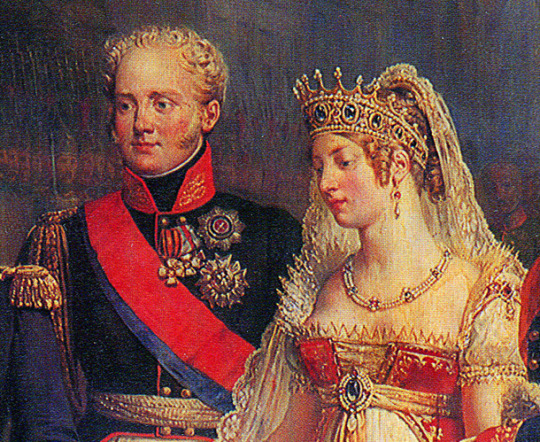

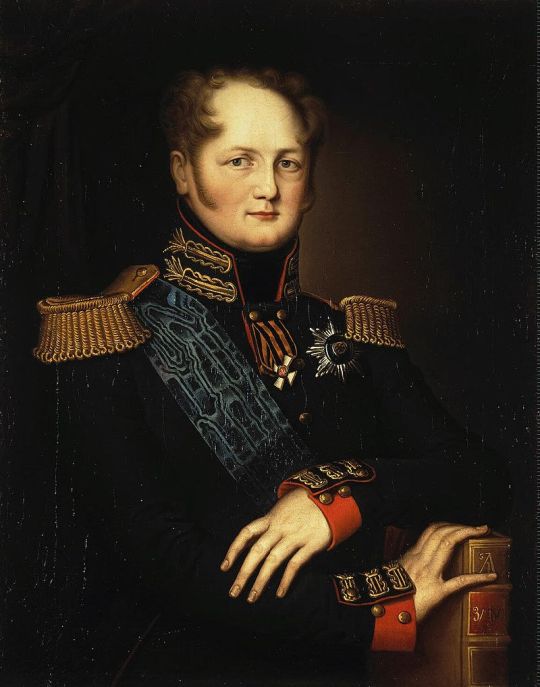
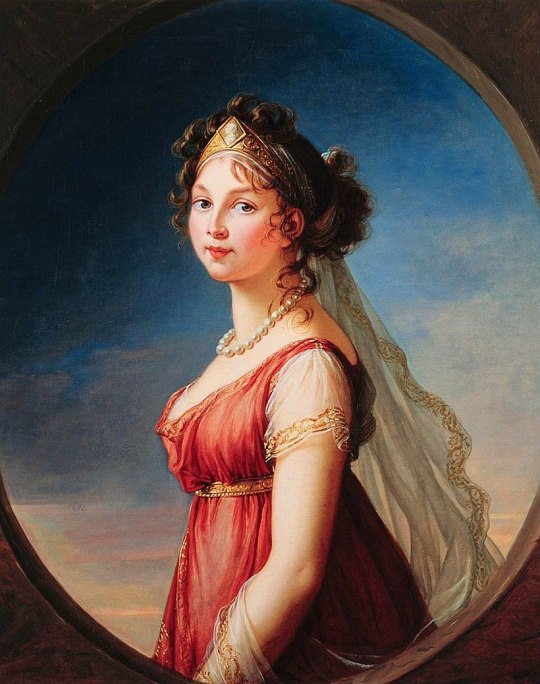
The day after Alexander's departure Louise, taking advantage of the courier's departure to St. Petersburg, sent a letter to him:
«I will try in vain to show you the grief which your departure has plunged me. It was terrible. Only the hope of seeing your Imperial Majesty in two years has somewhat comforted me».
A month later, Louise received a letter from her brother, Prince George, in which he admired the beauty of the Alps. Louise replied to him in a letter dated July 13, 1802:
«I have not seen any Alps, but I have seen people, or rather to say a man in the full sense of this word, who was brought up by an Alpine resident, and acquaintance with whom is dearer to me than all the Alps of the world. Because the Alps cannot do anything, but he acts, spreads happiness and blessing around him with every decision he makes. Each of his glance creates a circle of happy people, blessed by his heavenly kindness. You, of course, understood from the very first words that I am saying about the emperor, about the only Alexander».
#louise of mecklenburg-strelitz#luise zu mecklenburg#luise von mecklenburg-strelitz#alexander I of russia#alexander i#königin luise#Alexander the Blessed#aleksandr i pavlovich#Prussia#prussia x russia#Prussian royal family#Russia#women in history#Famous Women#beautiful women#russian history#history#prussian history#germany#romanovs#The Romanovs#House of Romanov#Romanov family#romanov#the romanoffs#romanoff family#Romanoff
20 notes
·
View notes
Photo
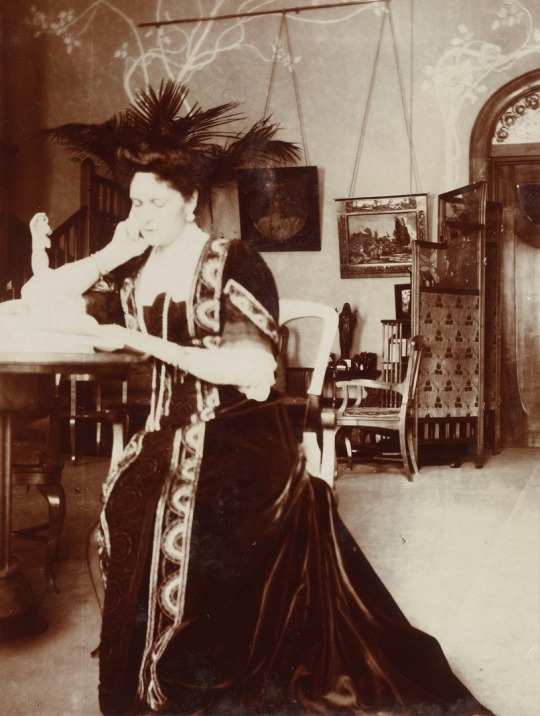



Empress Alexandra Feodorovna was tall, with fair hair, dark blue eyes and a very beautiful face. Her character is difficult to describe. Very restrained and rather silent, she was extremely shy, and because of this she was often misunderstood. She was too sensitive, and she was haunted by the idea that she was unpopular and unloved. This obsession even applied to family members. She was a devoted wife; indeed, she loved her husband so much that she didn't even like listening to his childhood memories related to my sister and me, since she wasn't there. Nevertheless, sometimes, in the circle of close relatives, she could be quite cheerful and funny. I know in most publications concerning the Empress, she is accused of many thoughts and actions that probably never occurred to her. Her devotion to her children was extraordinary—especially to her sick son, the Tsesarevich — and she gave them most of her time. She didn't like the social life. Balls, receptions and the audience were a real test for her. She did a lot of charity work, and her help was never in vain. Whatever was said, I am absolutely sure that the Empress adored her named homeland. She spoke and even wrote in Russian perfectly, she loved Russian culture and Russian religion, had no interests outside of Russia.
Memoirs of Grand Duchess Maria Georgievna of Russia, nee Princess Maria of Greece and Denmark
#empress alexandra feodorovna#alexandra feodorovna#tsarina alexandra#Princess Alix of Hesse and by Rhine#Alix of Hesse and by Rhine#alix of hesse#grand duchess maria georgievna of russia#princess maria of greece and denmark#House of Romanov#The Romanov Dynasty#Romanov dynasty#Romanov family#The Romanovs#Romanov#romanovs#alexandra feodorovna of russia#tsarina alexandra feodorovna#Empress Alexandra Feodorovna of Russia#Romanoff#Russian women#russian empire#russian emperial family#Russian Royal Family#russian royalty#women in history#Famous Women#beautiful women#Russia
79 notes
·
View notes
Photo

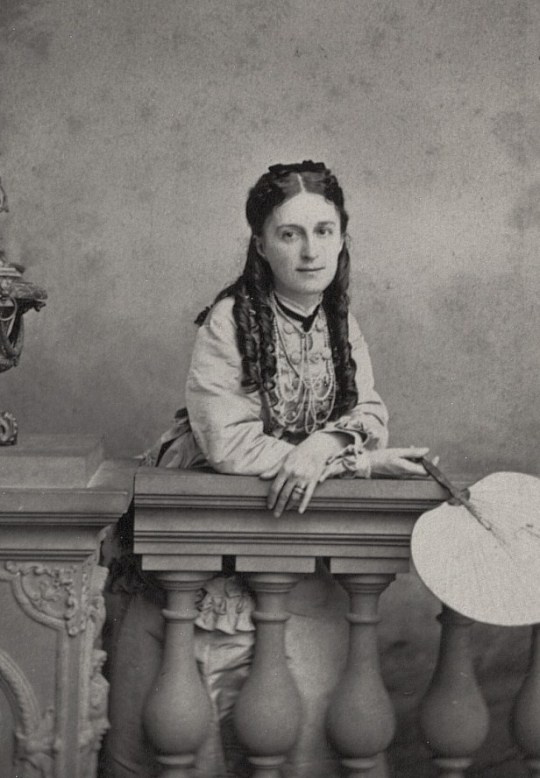
Regarding the first two births of Smirnova, Pushkin wrote to his wife:
Smirnova gave birth safely, and imagine: two. What a woman, and what a red-eyed rabbit Smirnov? — The first child was made so that it did not birth, and now they are forced to divide it into two. Today seems to be the ninth day — and as you can hear,the mother and children are healthy.
Alexandra Smirnova, née Rosset and her daughter Olga Smirnova. The second of the twin girls, Alexandra, did not live long. She died in Paris in 1837 from meningitis.
P/S. Alexandra Smirnova, née Rosset was a Russian Imperial court lady-in-waiting who served first widow Empress Maria Feodorovna, then, after her death in 1828, Empress Alexandra Feodorovna. Alexandra Rosset (who in 1832 married Russian diplomat Nikolai Smirnov), was an elitist Saint Petersburg salon hostess and a friend of Alexander Pushkin, Vasily Zhukovsky, Pyotr Vyazemsky, Nikolai Gogol and Mikhail Lermontov. She is best remembered for her memoirs, unusually frank, occasionally caustic, and, as it was argued decades later, not necessarily accurate.
#alexandra smirnova#alexandra rosset#olga smirnova#Alexander Pushkin#alexander sergeyevich pushkin#Russian women#Russian nobility#russian nobles#russian empire#russian imperial court#russian literature#russian history#vintage photos#vintage#1830s fashion#1830s#19th Century#late 19th century#1870s#1870s fashion
9 notes
·
View notes
Photo
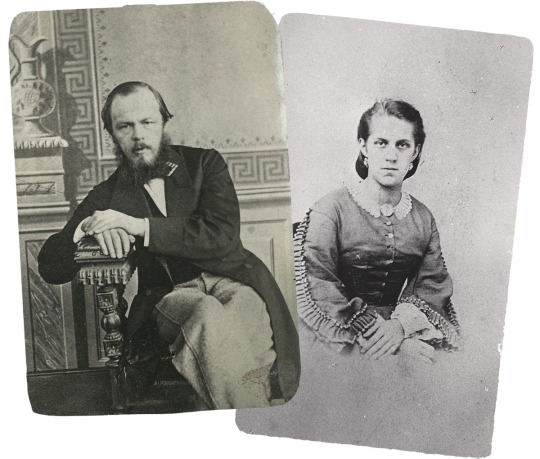
Then we remembered that we don't have coffee. Fedya immediately offered to go for coffee, candles and wine. I'm always surprised when Fedya does the housework for us. Well, who would have thought, I mean, would I have believed that this serious man, who I saw for the first time last October 4, this gloomy man, could deal with such trifles, talk with German merchants about candles and so on? Fedya went, but in the meantime they brought dinner, and I set the dishes on the table. I somehow accidentally went to the window and not through the window, but through the glass of the window, I saw Fedya, who was carrying a bouquet in his hands. I began to wait for Fedya, but instead of him came some boy about eight years old, very small. He brought a whole basket of berries. I took it from his hands, looked and saw that there were raspberries, apricots and peaches and my favorite gooseberries. This attention of Fedya to me made me extremely happy, especially since I did not expect it at all. Meanwhile,Fedya take a wine and came to me a few minutes later. Marie told the boy to sit on a chair, but the funny boy did not dare to do this, but only sat on the tip of the chair and looked at me terribly funny. Fedya came and gave me a bouquet; I was extremely happy and kissed Fedya several times. I am so grateful to my dear, dear Fedya for his attention to me: he knew that he would make me a great pleasure, and went to get a bouquet, and this is quite far from us. In general, I extremely appreciate all Fedya's attention to me; for example, when I go to bed, I say: “Goodbye, Fedya,” and he certainly comes to say goodbye to me, and I am always inexpressibly, inexpressibly glad and happy. So in this case, I was very, very pleased. Fedya told me that here, at the Stadt Paris, over wine, where he had already met the hostess, she, seeing the bouquet, said to him: “What a magnificent bouquet!”Fedya replied: “I'm taking it to my wife.“ All the German women who were in the shop were extremely pleased with this, that is, this attention to the “wife”. The bouquet is really magnificent; there were yellow and pink roses in the middle, violets and carnations all around, so it was amazingly beautifully composed.
Anna Dostoyevskaya's Diary in 1867
#Anna Dostoyevskaya#women in history#beautiful women#fyodor dostoevsky#fyodor mikhailovich dostoevsky#Anna Grigoryevna Dostoevskaya#anna grigoryevna snitkina#anna snitkina#russian literature#russian writer#russian writers#literature#world's literature#Russia#russian empire#russian history#history#writer's wifes#diaries#1800s aesthetic#1800s fashion#1860s#19th Century#xix century
5 notes
·
View notes
Photo
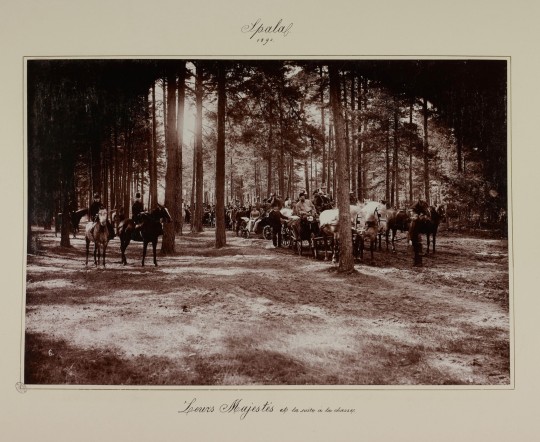
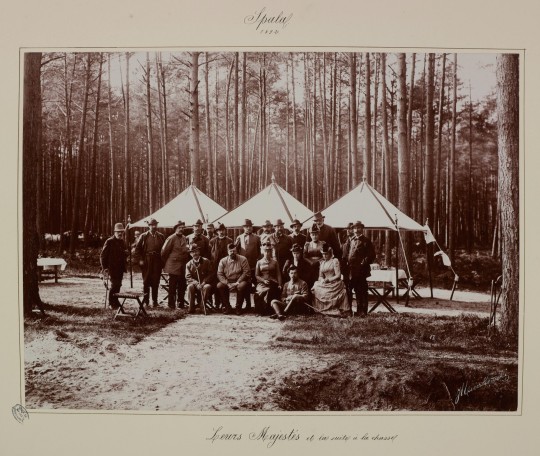

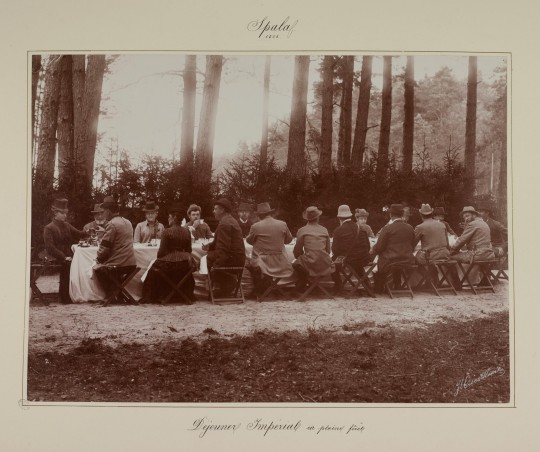
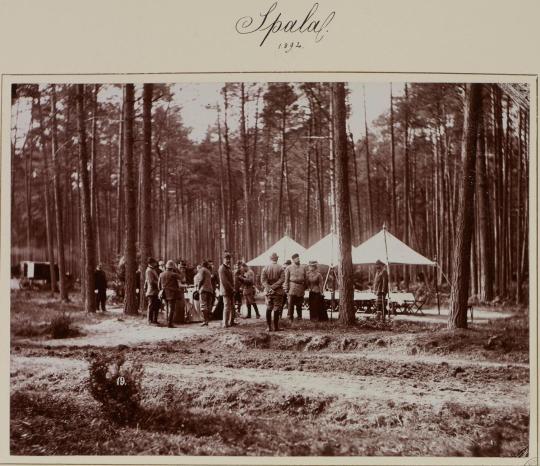


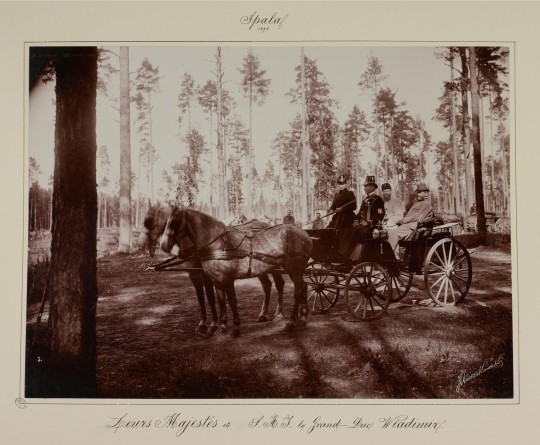

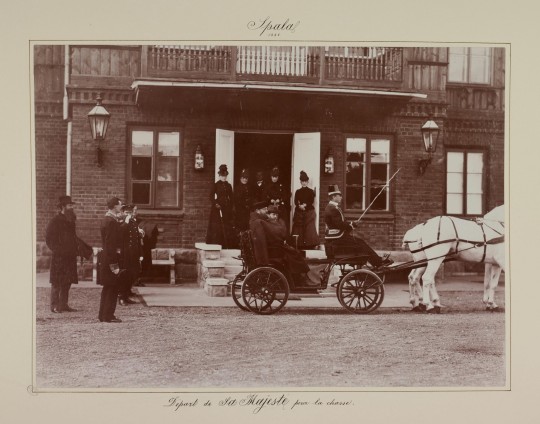
Alexander III with family in Spała, Poland.
#Emperor Alexander III#Emperor Alexander III of Russia#alexander iii of russia#Alexander III#Maria Feodorovna#Empress Maria Feodorovna#Maria Feodorovna of Russia#empress maria feodorovna of russia#Tsarina Maria Feodorovna#princess dagmar of denmark#Dagmar of Denmark#Grand duchess Xenia Alexandrovna#grand duchess xenia alexandrovna of russia#xenia alexandrovna#xenia alexandrovna romanova#Nicholas II of Russia#tsar nicholas II#Nicholas II#elisabeth feodorovna#Princess Elisabeth of Hesse and by Rhine#elisabeth of hesse and by rhine#Grand Duchess Elizabeth Feodorovna of Russia#poland
12 notes
·
View notes
Photo
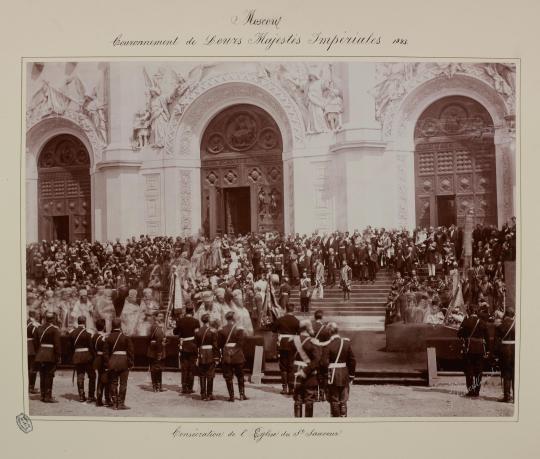
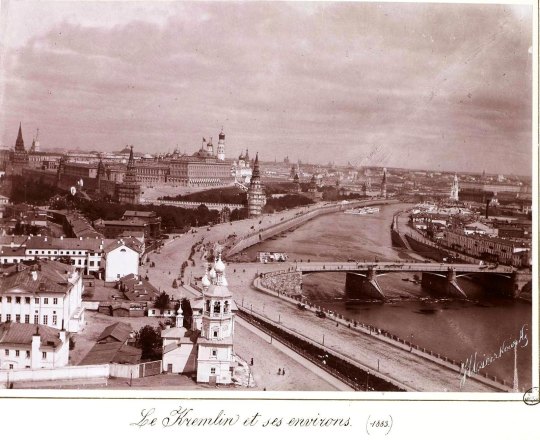
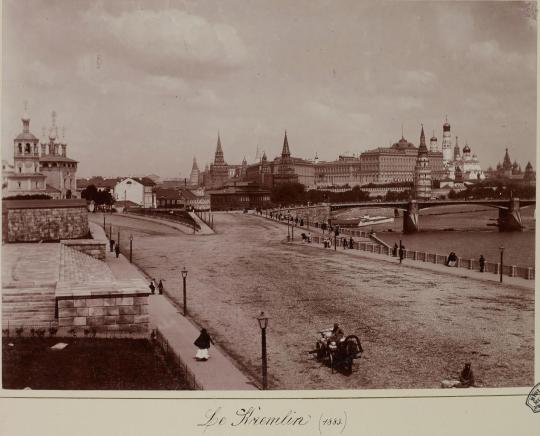
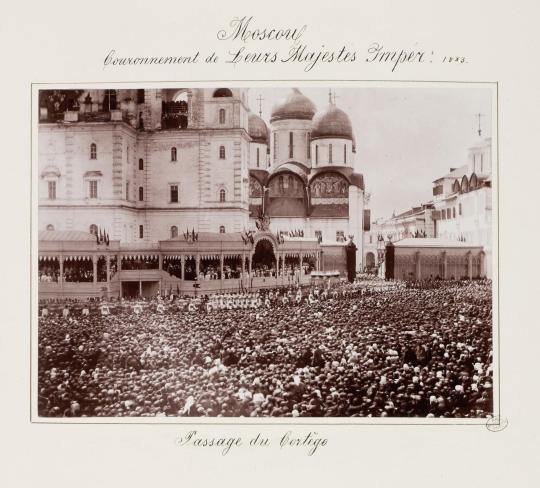
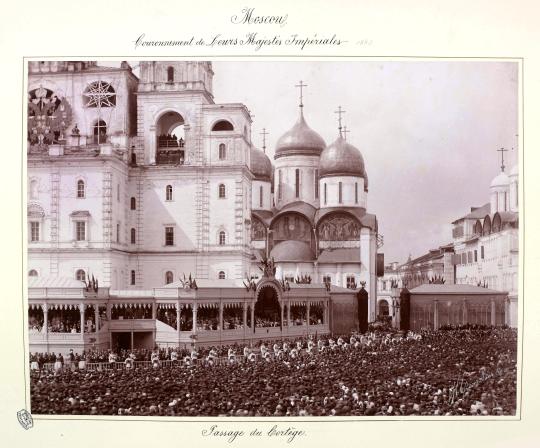
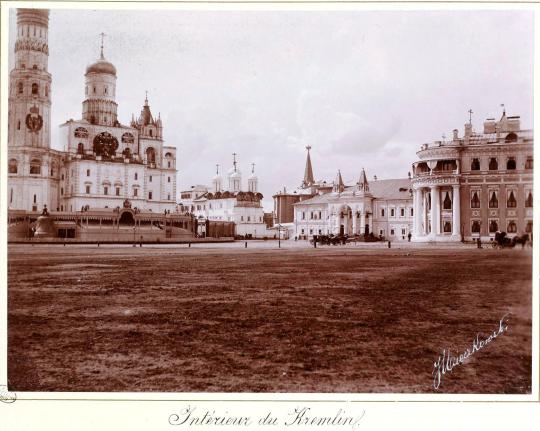
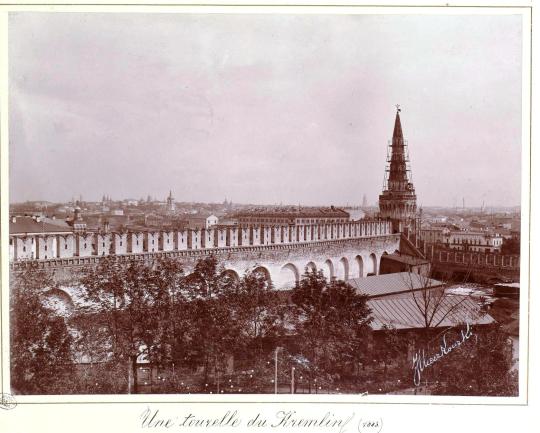

Moscow and Kremlin, which no longer exist. 1883.
#Moscow#Russian Empire#Russia#vintage photos#vintage#1880s#late 19th century#late xix#late xix century#kremlin
4 notes
·
View notes
Photo

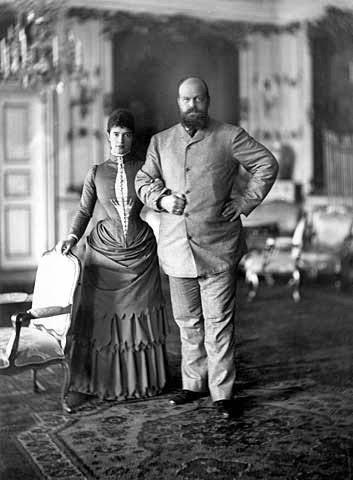
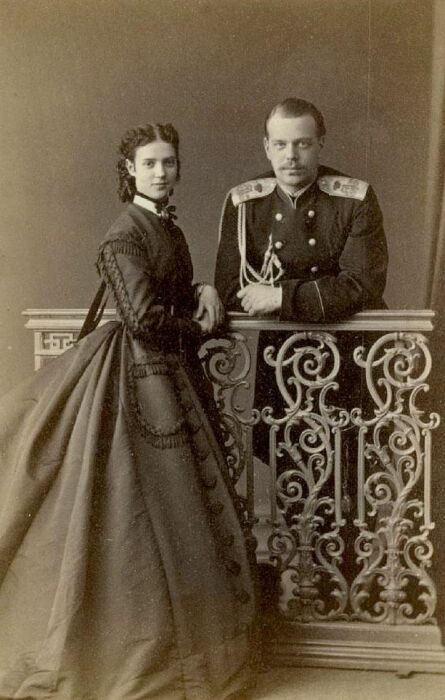
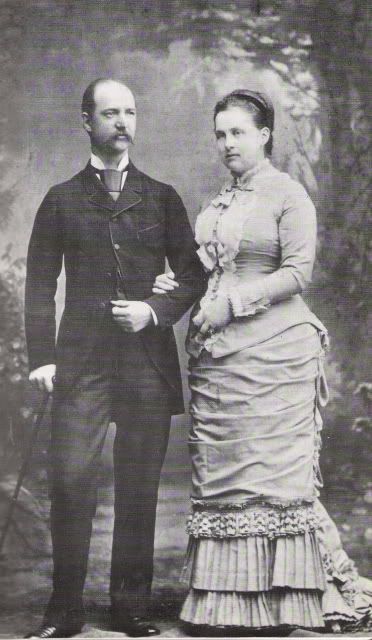
Two Russian-Danish couples of the Danish Royal Court: Emperor Alexander III of Russia & Dagmar of Denmark and George I of Greece & Grand Duchess Olga Constantinovna of Russia.
#Emperor Alexander III#alexander iii of russia#Alexander III#Empress Maria Feodorovna#empress maria feodorovna of russia#Maria Feodorovna#Maria Feodorovna of Russia#Tsarina Maria Feodorovna#princess dagmar of denmark#Dagmar of Denmark#george i of greece#Grand Duchess Olga Constantinovna of Russia#Olga Constantinovna of Russia#Russian Royal Family#denmark royal family#holstein-gottorp-romanov#House of Romanov#Romanov family#The Romanovs#Romanoff#Romanov#romanovs#Romanov dynasty#House of Glücksburg#Glücksburg#Glücksburg dynasty#1880th#1800s aesthetic#1800s fashion#late 19th century
9 notes
·
View notes
Photo


The lost portrait of Empress Maria Feodorovna from Smolny Institute of Noble Maidens. Presumably, the portrait was either destroyed during the revolution, or stolen and now it's kept in a private collection.
#Empress Maria Feodorovna#empress maria feodorovna of russia#Tsarina Maria Feodorovna#Maria Feodorovna of Russia#Maria Feodorovna#princess dagmar of denmark#Dagmar of Denmark#portraits#russian portraits#portrait#Russian Royal Family#denmark royal family#romanov dynasty#The Romanov Dynasty#Romanov family#The Romanovs#House of Romanov#Romanov#romanovs#Romanoff#1800s aesthetic#late 1800s#1880s#1880s fashion#painting aesthetic
19 notes
·
View notes
Photo


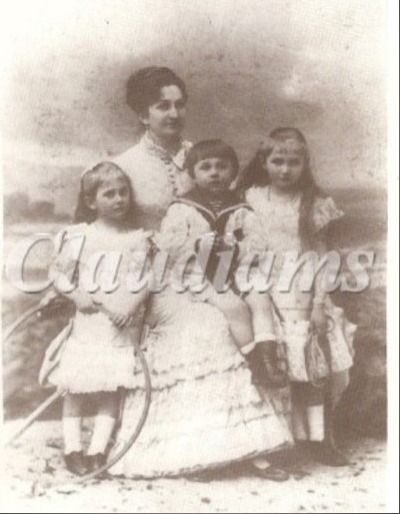
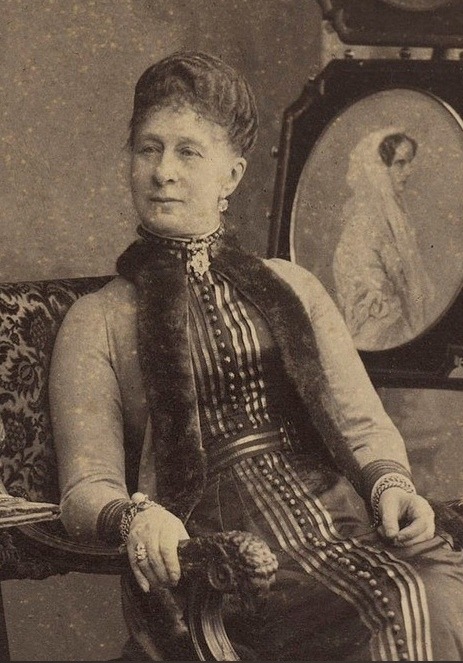
Around 1868, Konstantin began to pursue Anna Vasilyevna Kuznetsova, a young dancer from the St Petersburg Conservatoire. She was the illegitimate daughter of ballerina Tatyana Markyanovna Kuznetsova and actor Vasily Andreyevich Karatygin. Anna was twenty years younger than Konstantin and in 1873 she gave birth to their first child. Four more would follow. Konstantin bought his mistress a large, comfortable dacha on his estate at Pavlovsk; thereby lodging his second family in close proximity to Alexandra, whom he now referred to as his "government–issue wife". By this act Konstantin gave ammunition to his political enemies, with Russian society reacting to the scandal by siding with his suffering wife, Alexandra, who tried to bear his infidelity with dignity
But then Konstantin Nikolayevich and his second family began to be haunted by misfortunes. Three of his five children died, and it was a terrible blow for Konstantin Nikolayevich. And 1881 was fatal for him. On March 1, Alexander II dies after an assassination attempt and Alexander III becomes emperor, who removes him from almost all positions (Konstantin Nikolayevich was the chairman of the State Council, headed a huge number of commissions). The new emperor had long disliked his uncle Koko, as he was called in the family, and not only because he was a liberal. Alexander III was an exemplary family man, and the lifestyle of Konstantin Nikolayevich had long irritated him. He had before his eyes the example of his mother, Empress Maria Alexandrovna, who suffered because of the relationship between her husband, Emperor Alexander II and Princess Dolgorukova.
In June 1889, Alexandra’s 18-year-old granddaughter, Princess Alexandra of Greece, returned to Russia to marry Grand Duke Paul, who was the younger brother of Tsar Alexander III. Towards the end of the wedding celebrations, Konstantin suffered a stroke. This was followed in August 1889 by a severe stroke, which left him unable to walk or speak .Because of it Konstantin Nikolayevich returned to his first family to Aunt Sunny, that was the name of Alexandra Iosifovna in the family, who at first did not even want to hear about it, but eventually accepted him.For the remaining three years of his life Konstantin lived with his wife in her favourite palace Pavlovsk, having a wing of the building to himself. He was confined to a bath chair, and Alexandra saw to it that Konstantin was denied contact with his mistress and illegitimate offspring. Alexandra’s grandson, Christopher of Greece, wrote in his memoirs that Konstantin became so frustrated with being under Alexandra’s control that he one day grabbed her by the hair and beat her with his stick.Seeing as Christopher would have only been four years old at the time of Konstantin’s death, it is difficult to know the full truth of this story.
Despite his illness, Konstantin tried to amuse himself as best he could. His grand-nephew Kirill Vladimirovich remembered skating parties at Pavlovsk, where Konstantin would watch from his sledge, and how he always "smelt of cigars". And yet Alexandra Iosifovna, as a nurse, was constantly with him — she fulfilled her duty to the end. When Konstantin died, in January 1892, Alexandra arranged for his mistress Anna to visit Pavlovsk and pray at Konstantin’s bedside.
#grand duchess alexandra iosifovna of russia#alexandra iosifovna of russia#grand duchess alexandra iosifovna#princess alexandra of saxe-altenburg#grand duke konstantin nikolayevich of russia#grand duke konstantin nikolayevich#anna kuznetsova#anna knyazeva#romanov dynasty#House of Romanov#Romanov family#The Romanovs#Romanoff#Romanov#romanovs#Russian Royal Family#russian history#russian royalty#Russian Empire#russian emperial family#women in history
9 notes
·
View notes
Photo

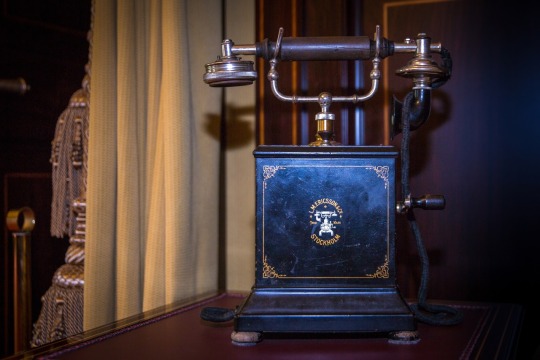

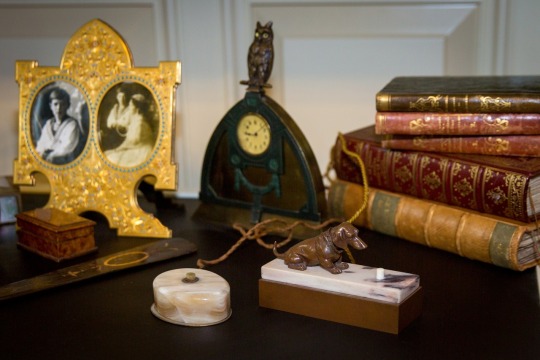

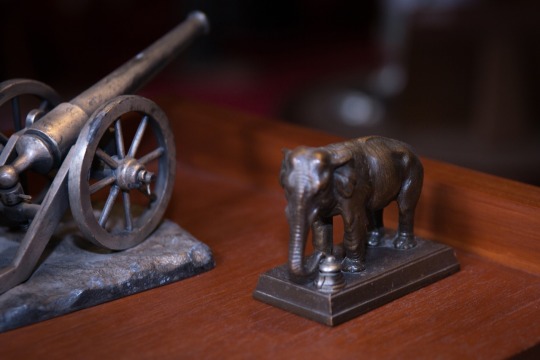
Aesthetics of Alexandra Feodorovna desk in the restored Lilac Room of the Alexander Palace in Tsarskoye Selo.
Photos by Tsarskoe Selo State Museum and Heritage Site
#empress alexandra feodorovna#tsarina alexandra#tsarina alexandra feodorovna#alexandra feodorovna#Princess Alix of Hesse and by Rhine#alix of hesse#Alix of Hesse and by Rhine#russian aesthetic#aesthetics#russian aesthetics#royal aesthetics#russian royalty#russian royal family#russian art#romanov dynasty#the romanoffs#The Romanov Dynasty#The Romanovs#romanov#Romanov family#romanovs#museams#tsarskoe selo#Tsarskoe Selo State Museum and Heritage Site
13 notes
·
View notes
Photo

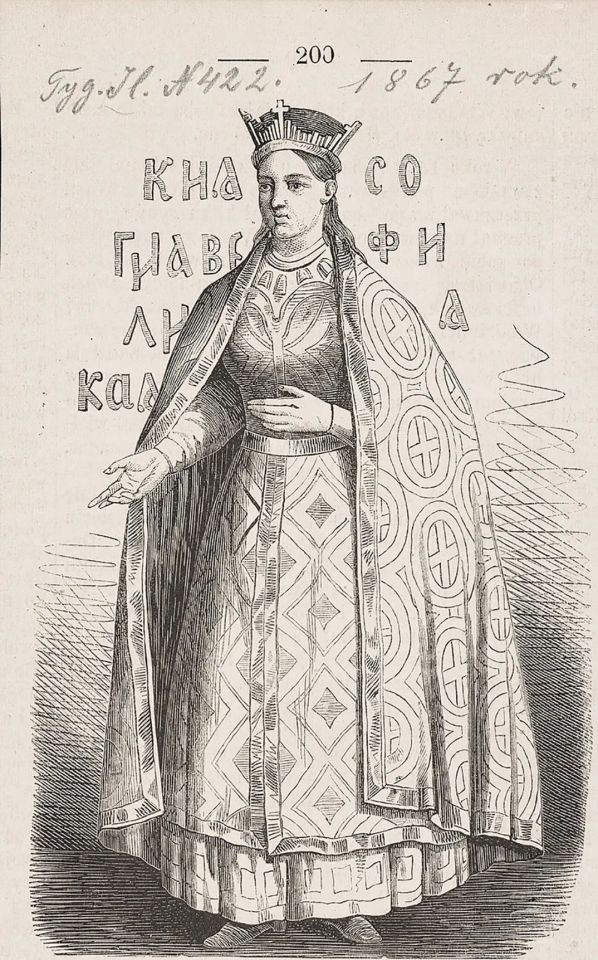
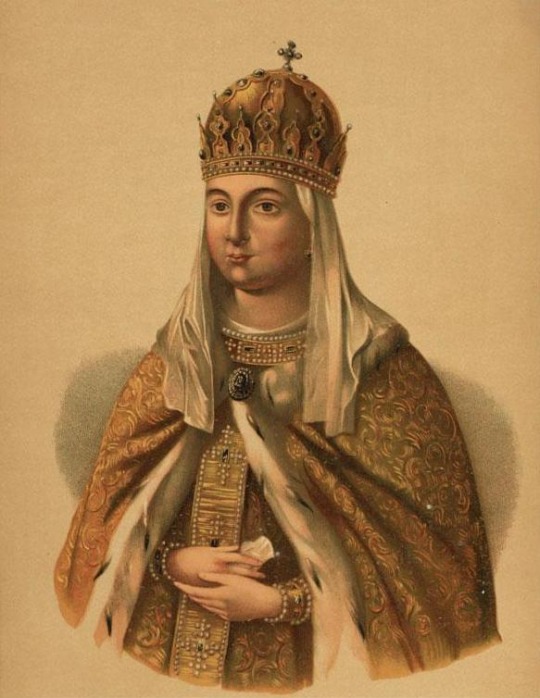
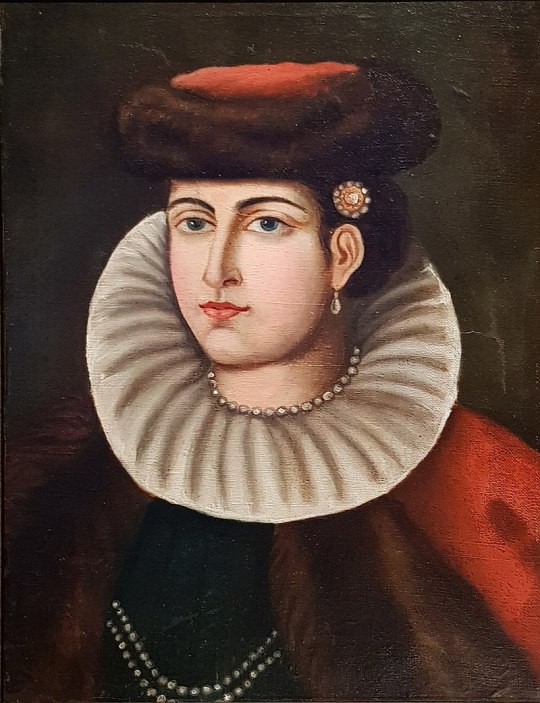
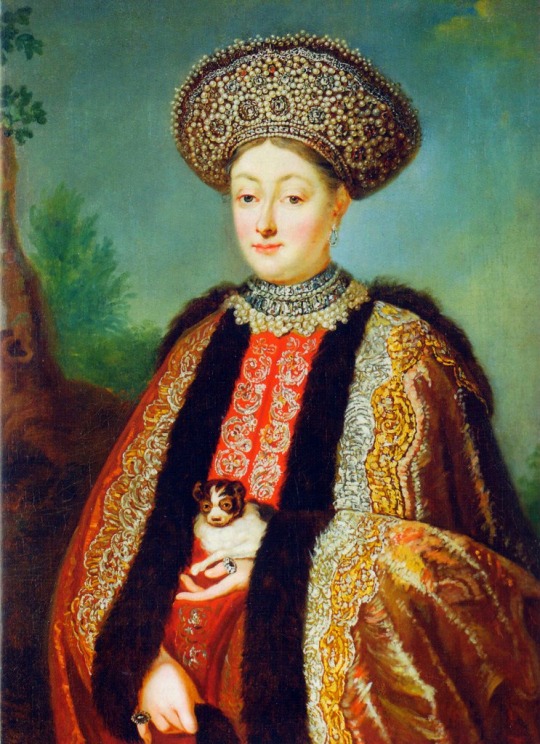
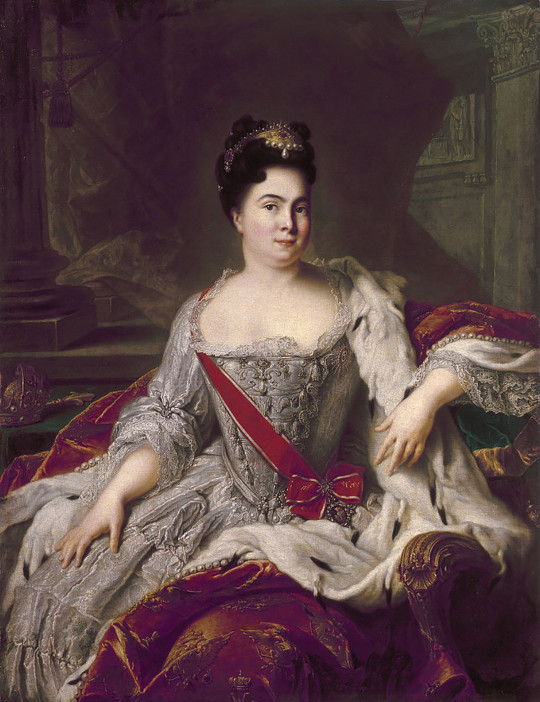

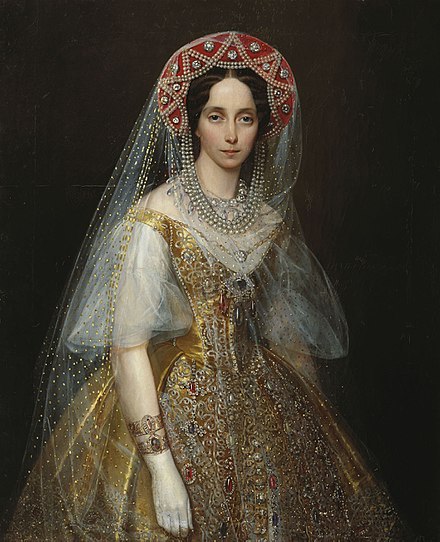

A short version of evolution of Russian Court Dress from the late XIV to early XX century:
1.Grand Princess Eudoxia of Moscow, nee Princess Eudoxia of Suzdal
2.Grand Princess Sofia Vitovtovna,nee Princess Sophia of Lithuania,
3.Tsaritsa Maria Miloslavskaya, russian noble.
4.Tsaritsa Agafya Grushetskaya, nee Agata Gruszecka. In fact, this is a portrait of Sophia Olelkovich Radziwill. But according to the documents, Agafia dressed in a similar way, but without such a collar. She popularized Polish fashion at the russian court.Even after her sudden death, some of the tsar's sisters preferred to dress in Polish till Peter the Great’s changes.
5.Tsaritsa Marfa Apraksina, russian noble
6. Empress Catherine I of Russia,nee Marta Helena Skowrońska
7. Empress Elizabeth Alexeievna, nee Princess Louise of Baden
8. Empress Maria Alexandrovna, nee Princess Marie of Hesse and by Rhine
9. Empress Maria Feodorovna, nee Princess Dagmar of Denmark
#Russian Court Dress#Grand Princess Eudoxia of Moscow#Princess Sophia of Lithuania#Grand Princess Sofia Vitovtovna#Maria Miloslavskaya#Agafya Grushetskaya#Agata Gruszecka#marfa apraksina#elizabeth alexeievna#Empress Elizabeth Alexeievna#Princess Louise of Baden#sophia olelkovich radziwill#catherine i of russia#marta helena skowrońska#Marta Skowrońska#Empress Maria Alexandrovna of Russia#Princess Marie of Hesse and by Rhine#Empress Maria Feodorovna#princess dagmar of denmark#rurik dynasty#house of rurik#romanov dynasty#House of Romanov#The Romanovs#Romanov family#romanovs#russian fashion#historical fashion#fashion#evolution of fashion
19 notes
·
View notes
Photo

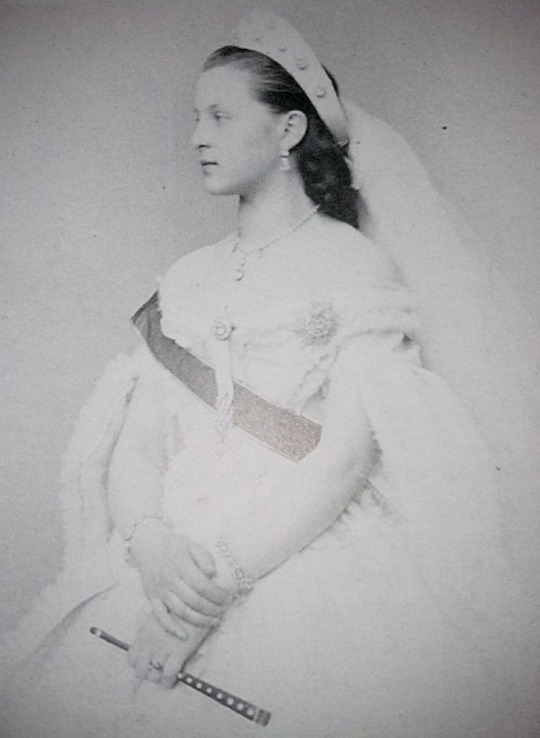


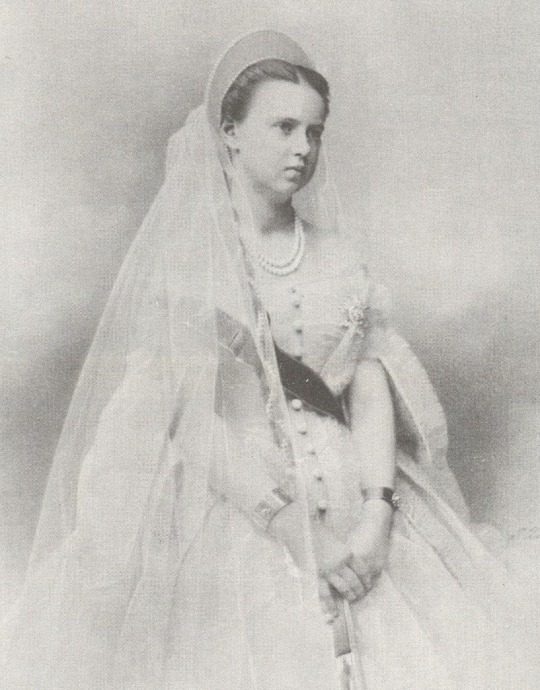

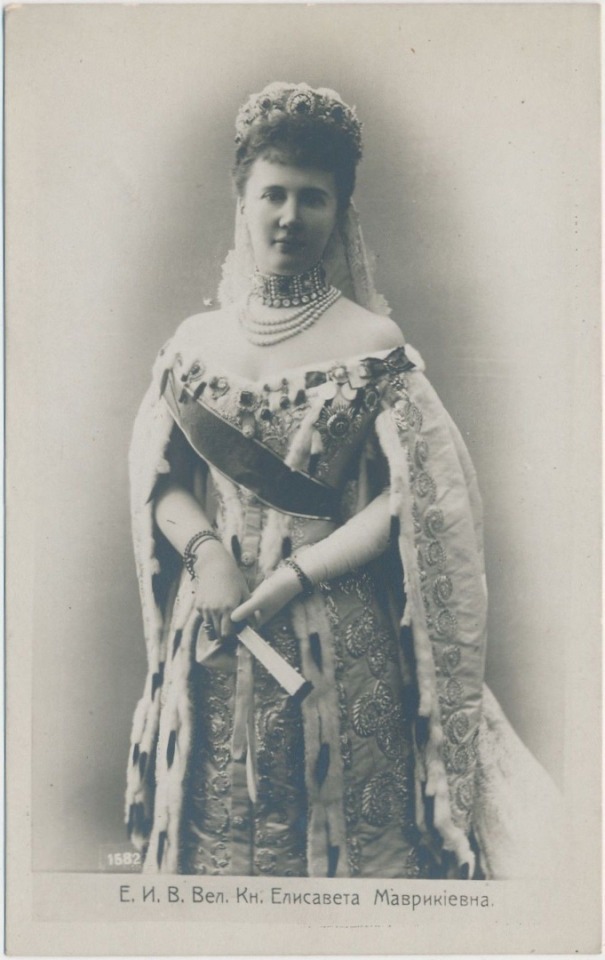
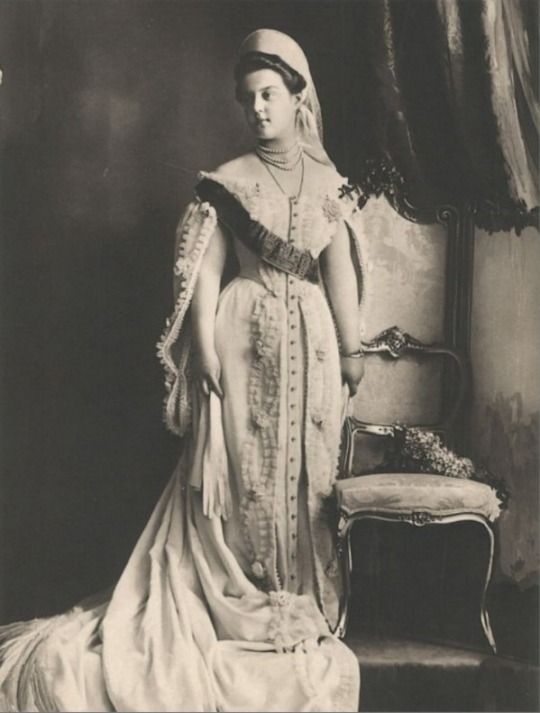

Romanovs in a Russian Court Dress [Part-1]: Grand Duchess Elizabeth Feodorovna, Grand Duchess Olga Constantinovna (future queen of the Hellenes), Grand Duchess Alexandra Georgievna, Empress Alexandra Feodorovna, Grand Duchess Maria Alexandrovna, Grand Duchess Elena Pavlovna, Grand Duchess Elizabeth Mavrikievna, Grand Duchess Maria Pavlovna the Younger, Grand Duchess Maria Pavlovna the Elder
#elizabeth feodorovna#Grand Duchess Elizabeth Feodorovna of Russia#Princess Elisabeth of Hesse and by Rhine#grand duchess olga constantinovna#Grand Duchess Olga Constantinovna of Russia#grand duchess alexandra georgievna#princess elisabeth of saxe-altenburg#princess alexandra of greece and denmark#empress alexandra feodorovna#empress alexandra feodorovna of russia#Princess Alix of Hesse and by Rhine#alix of hesse#grand duchess maria alexandrovna#Grand Duchess Maria Alexandrovna of Russia#grand duchess elizabeth mavrikievna#grand duchess maria pavlovna#duchess marie of mecklenburg-schwerin#The Romanovs#Romanov family#House of Romanov#Romanov#romanovs#The Romanov Dynasty#Romanov dynasty#russian court dress
17 notes
·
View notes
Photo
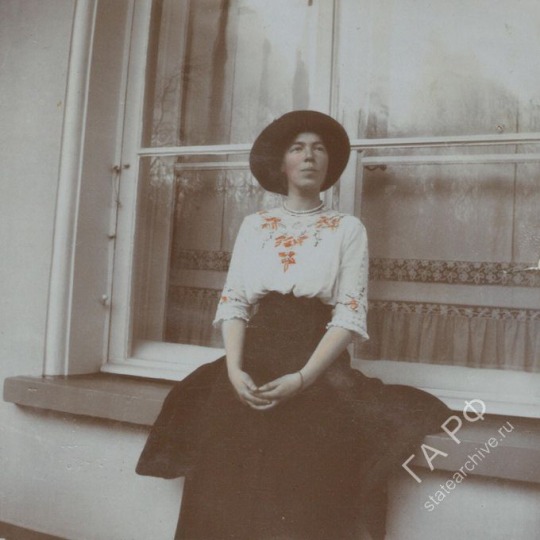

Grand Duchess Olga Alexandrovna of Russia.
#grand duchess olga alexandrovna of russia#grand duchess olga alexandrovna#olga alexandrovna#olga alexandrovna of russia#House of Romanov#The Romanovs#Romanoff#Romanov#romanovs#The Romanov Dynasty#romanov dynasty#Romanov family
11 notes
·
View notes